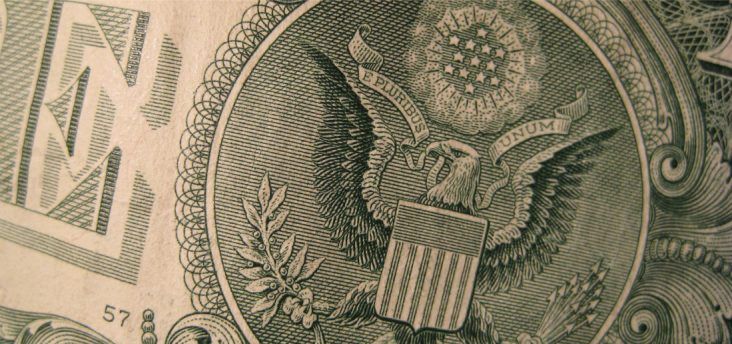Rep. Hill weighs in on Trump’s China moves, questioning of Federal Reserve Bank
by August 24, 2019 7:32 pm 956 views

U.S. Rep. French Hill, R-Little Rock, on Saturday (Aug. 24) outlined his agreements and disagreements with President Donald Trump’s new aggressive stance on Chinese trade as well as his comments toward Federal Reserve Bank Chair Jerome Powell, which Hill deemed “tongue-in-cheek.”
On Friday, Powell indicated that the central bank could cut key interest rates over the next year in its efforts to maintain economic growth that has seen inflation largely kept in check and low unemployment. Powell, speaking from an annual conference in Jackson Hole, Wyo., suggested that the international trade and tariff wars made Fed moves unpredictable.
“While monetary policy is a powerful tool that works to support consumer spending, business investment and public confidence, it cannot provide a settled rule book for international trade,” Powell said. “Our challenge now is to do what monetary policy can do to sustain the expansion.”
Earlier on Friday, China raised tariffs on U.S. goods in an escalating retaliation with American tariffs imposed on Chinese goods by Trump.
Trump criticized Powell for his handling of the economy and tweeted shortly after the Fed chairman’s speech.
“As usual, the Fed did NOTHING! It is incredible that they can ‘speak’ without knowing or asking what I am doing, which will be announced shortly. We have a very strong dollar and a very weak Fed. I will work ‘brilliantly’ with both, and the U.S. will do great. My only question is, who is our bigger enemy, Jay Powell or Chairman Xi?” Trump tweeted.
Later on Friday, Trump vowed to raise tariffs higher on current goods and “ordered” U.S. companies to move their business from China, a move that Gov. Asa Hutchinson said “would be a mistake.” Trump’s comments on the Fed and China sent the financial markets into a tailspin.
Rep. Hill, a former banker and U.S. Treasury official during the George H.W. Bush administration, sits on the House Financial Services Committee, including the Subcommittee on National Security, International Development and Monetary Policy.
He said he did not take Trump’s comments toward Chairman Powell too seriously despite its contribution to Friday’s stock market plummet.
“Over the past five decades, presidents of both parties have complained about the Chairman of the Fed and how the Fed’s actions have impacted the economy. While serving as an economic policy adviser to President George H.W. Bush, I witnessed firsthand his frustration with Fed Chairman [Alan] Greenspan. I believe the president was making a tongue-in-cheek comment. In my view, President Xi is clearly an enemy of freedom,” Hill tells Talk Business & Politics.
Hill said companies should move their business from China and he noted that some Arkansas firms already were working with suppliers who have done that.
“U.S. companies are already looking for new suppliers as an alternative to China. I’ve spoken with local business owners in Arkansas, including a furniture retailer who noted that one of his suppliers has moved about $5 billion in annual production from China to Vietnam,” Hill said. “The reality is that American business leaders are fed up with China’s bad trade policies and have been looking for alternative markets. The president is echoing their frustrations. Furthermore, the Chinese economy has been weakening and the strategic use of tariffs have brought them to the table to renegotiate.”
Hill, who has previously warned that tariffs would ‘backfire’, has moderated that stance after their implementation. When asked about the president’s latest threat to raise tariffs, Hill said he still agrees with their use but would prefer a larger coalition of nations putting pressure on China.
“The president has made it clear that he will take a firm stand against China’s corrupt mercantilist trade policies, its military buildup in the South China Sea, its cyber-attacks against the U.S. and its allies, its human rights abuses against religious minorities, as well as its failure to honor the ‘one country, two systems’ policy in Hong Kong,” Hill said. “I continue to support the strategic use of targeted, temporary tariffs that bring China to the negotiating table so that we can fix longstanding trade abuses that we have suffered. But I continue to oppose a unilateral approach by the U.S. I believe that the European Union and Japan should actively be engaged in publicly pressing the Chinese regime for timely, constructive change.”
The president suggested he has the authority to “order” American businesses to move out of China as he directed in a tweet on Friday.
“Our great American companies are hereby ordered to immediately start looking for an alternative to China, including bringing your companies HOME and making your products in the USA,” Trump tweeted.
Hill said Congress should reel in executive power regarding tariffs, but he did not weigh in on the president’s citation of the 1977 International Emergency Economic Powers Act, which Trump claims gives him wide latitude to make demands of American businesses.
“In regard to tariff oversight, Congress should consider proposals to limit the broad discretion for national security purposes that the president has under the 1962 Trade Expansion Act. I do not support the president’s use of this power to impose across the board steel and aluminum tariffs.
“Congress, on a bipartisan basis, generally supports a tougher approach to China. For example, in regard to tougher rules for Chinese investments in the U.S., Congress has previously taken action, that I have worked on and supported, to reform CFIUS [Committee on Foreign Investment in the U.S.] regulations. The Foreign Investment Risk Review Modernization Act (FIRRMA) was signed into law last year. This legislation enhances the Treasury Department’s ability to block China from purchasing American companies that impact our national security.
“Additionally, Congress should also consider a measure in support of the people of Hong Kong and adherence to the 1997 provisions whereby Hong Kong freedoms are protected by the carefully negotiated agreement for ‘one country, two systems’,” Hill said.
